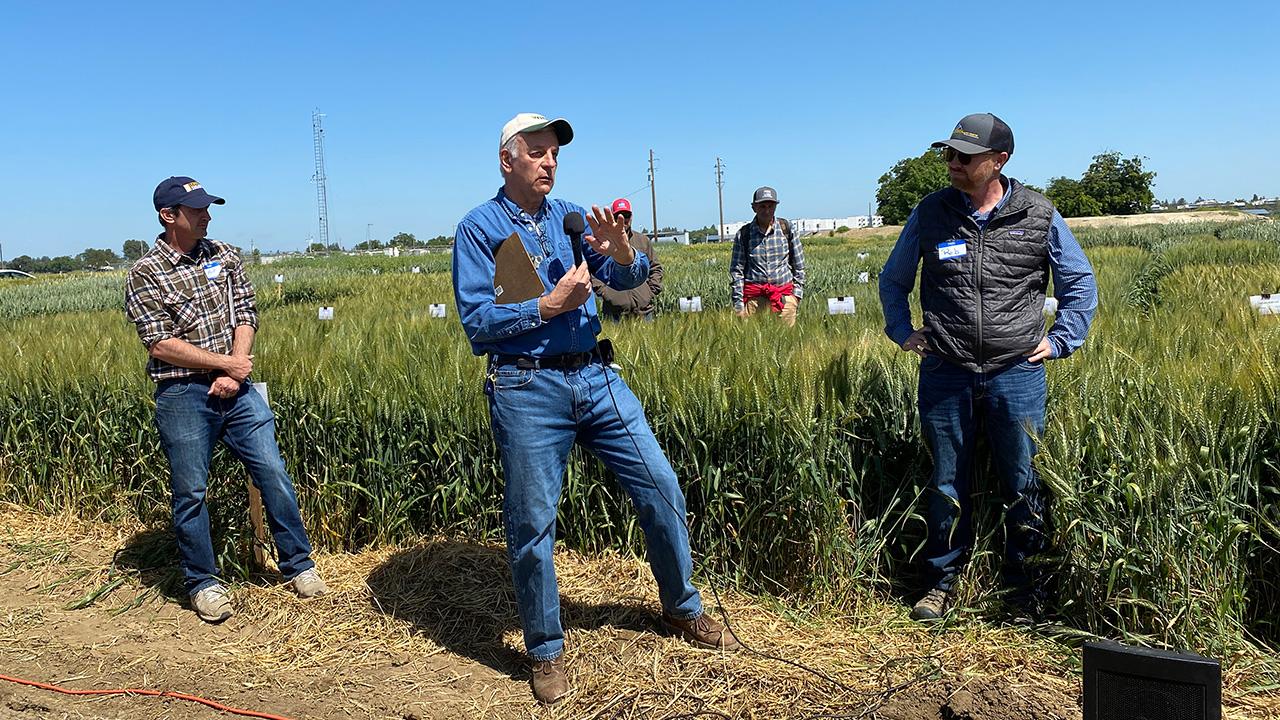
Dubcovsky lab seeks non-allergenic wheat
Productivity, day length studies also advance with Howard Hughes Medical Institute support
Jorge Dubcovsky’s ground-breaking research on wheat genetics will receive an additional seven years of support from the Howard Hughes Medical Institute. Dubcovsky and team, in the UC Davis Department of Plant Sciences, are looking for ways to make wheat less likely to spark allergic reactions in people – a condition that affects about 3 million Americans.
In addition, the team will look at why wheat responds to day length differently from other types of grasses, which could offer clues for boosting grain production. They’ll also create a map of the genes that control the development of grain spikes. “We want to develop more productive spikes,” said Dubcovsky, a distinguished professor.

The institute is supporting the work with a seven-year extension, announced in December, of Dubcovsky’s 2017 appointment as an institute investigator. The appointment provides $900,000 yearly in research support.
These three research areas aim to improve a crop of global importance. Wheat is a leading food both in the United States and around the world, providing about 18 to 20 percent of people’s calories, and 20 to 23 percent of their protein, according to the United Nations and other sources.
But wheat genetics is very complicated, making it a difficult crop to study. Starting more than two decade ago, Dubcovsky and team set out to create a resource for researchers to study genes that could be useful for breeding – for example, making plants more productive, tolerate frost or resist disease. They sequenced billions of DNA fragments in more than 2,700 lines of wheat, cataloguing more than 15 million mutations. They made their database publicly available, and seeds from their wheat lines are available to researchers and breeders.
He called the new tool "a game changer." “This resource allows scientists to turn off or modify almost all wheat genes,” Dubcovsky said.
The “staff of life” can be friendly again
That’s when the Howard Hughes Medical Institute reached out to Dubcovsky, offering to support his research. Now, HHMI’s renewal pushes the work farther, potentially benefitting millions of people.
Gluten, the component of wheat that carries its protein, can trigger an allergic reaction in some people, causing bowel inflammation. The condition affects about one in 100 people worldwide, according to the Celiac Disease Foundation.
“We hope to develop non-allergenic pasta and bread wheat lines for celiac disease research,” Dubcovsky said. He and the team also aim for their non-allergenic wheat to produce delicious food. “If we can reduce wheat's allergenicity, we can reduce the incidence of celiac disease.”
More about wheat research
More about Jorge Dubcovsky’s research is here.
More about Dubcovsky’s work supported by the Howard Hughes Medical Institute is here.
Media Resources
- Trina Kleist, UC Davis Department of Plant Sciences, tkleist@ucdavis.edu, (530) 754-6148 or (530) 601-6846.
